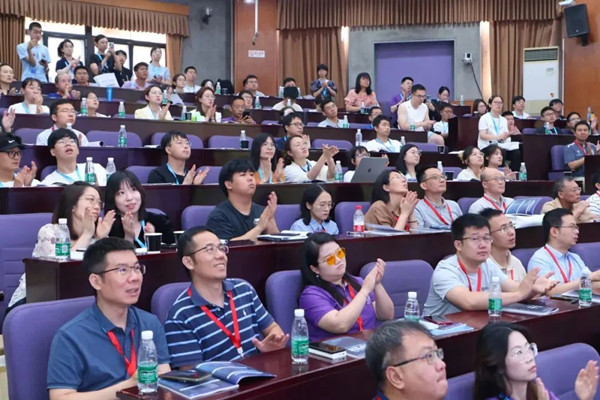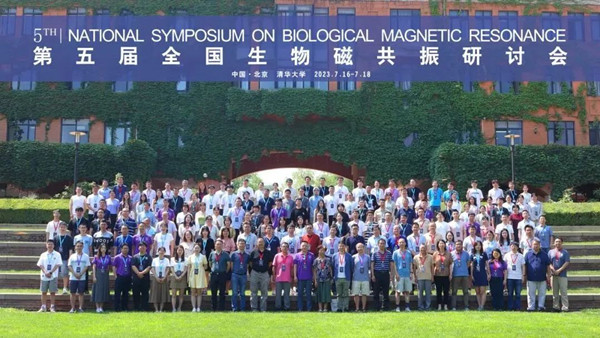Home> News
Fifth National Symposium on Biological Magnetic Resonance closes
Updated: 2023-08-04
The Fifth National Symposium on Biological Magnetic Resonance, organized by the Biological Magnetic Resonance Academic Subgroup of the Biophysical Society of China (BSC), took place from July 16 to 18 at Tsinghua University.
Themed "Magnetic Resonance Empowered by AI", the symposium aimed to explore the prospects of magnetic resonance technology amidst the rapid development of artificial intelligence and computational methods. It also sought to foster the integration of magnetic resonance with deep learning, big data, molecular simulation and other techniques to enhance its unique advantages in biological research.

More than 200 renowned experts, young scholars and students from across China participate in the Fifth National Symposium on Biological Magnetic Resonance. [Photo/WeChat account: BSC]
More than 200 renowned experts, young scholars and students from across China participated in the event.
During the opening ceremony, Wang Hongwei, vice-president of Tsinghua University, and Tang Chun, president of the BSC Biological Magnetic Resonance Academic Subgroup, who is also a professor at Peking University, shared their thoughts and visions on how AI can empower biological magnetic resonance. They encouraged experts and scholars from diverse fields to collaborate and spark new ideas under the influence of AI.
About 50 guests from esteemed domestic and international academic institutions, including the University of Science and Technology of China, Tsinghua University, Peking University and the National University of Singapore, presented their latest research advancements and innovative applications in such areas as biological nuclear magnetic resonance, paramagnetic resonance and magnetic resonance imaging.
The event also provided a platform for young researchers, especially graduate students, to showcase their research outcomes and engage in mutual learning by holding presentations and poster exhibitions, with more than 30 papers being selected for poster presentations.
Looking ahead, in this era of ever-changing technological advancements, AI empowerment will play a crucial role in driving the development of biological magnetic resonance technology and leading humanity to explore more uncharted territories. It is foreseeable that with the support of AI, biological magnetic resonance technology will play a more significant role in solving major scientific problems and contributing to human health, according to participants of the symposium.

Participants of the symposium pose for a group photo. [Photo/WeChat account: BSC]
